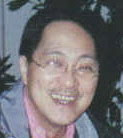GOTCHA By Jarius Bondoc, Pilipino Star Ngayon, Monday, October 29, 2007
“I’m not against pardon per se, I’m against the undue haste to grant it.” Thus Special Prosecutor Dennis Villa-Ignacio explains his objection to President Gloria Arroyo’s executive clemency for predecessor Joseph Estrada. He rues that it came only one month after Estrada’s life sentencing for plunder: “we should have let the lesson of that court ruling sink into the public psyche first”. Also, that the commutation was done in such a hurry that it took only two hours from Arroyo’s signing to Estrada’s release from “rest house arrest”. “They broke procedure,” cries Villa-Ignacio, who had led the six-year trial of the first president to be charged with the heinous crime. “Their own rule is for the Board of Paroles and Pardons to deliberate first if clemency is appropriate and so to be recommended to the President. The Board has to determine if the convict is remorseful and, as proof, has recompensed society for his misdeed.”
Estrada, according to Villa-Ignacio, has yet to return close to a billion pesos that the Sandiganbayan had ruled was his illegal take from gambling. In the government’s rush to pardon a still popular politico, he adds, it broke the constitutional rule that such actions do not cover impeachment cases. The guilty verdict may have stemmed from criminal charges filed by the Ombudsman in Apr. 2001, but the charges had come from his impeachment in Nov. 2000, just that a people power revolt cut the trial short. And so Villa-Ignacio is asking the Supreme Court to nullify Arroyo’s swift gift to Estrada.
“But that’s that,” counters Rene Saguisag, former senator and one of Estrada’s lawyers. Pardon is the President’s exclusive power as stated in the Constitution. Whether she grants it fast or not is her prerogative alone. No one may question her for it, Saguisag says in belittling Villa-Ignacio’s plea to the Supreme Court.
About indemnity, Estradas counsels say the government is entitled to the P2,000 or so that’s left in Estrada’s alias Jose Velarde bank account. In their interpretation, Estrada must recompense society only with what the government could get its hands on upon commencement of trial.
As lawyers, Saguisag says, they would have wanted to fight out also in the Supreme Court Estrada’s earlier motion to reverse his sentencing. “But we were not the ones in prison,” he quickly adds, “We were not the ones left contemplating our future from the lonely confines of our cell.” And so they worked on the client’s desire for early freedom. Estrada had claimed earlier that, in accepting Arroyo’s pardon, he was deferring to his lawyers’ wisdom. But it does not matter anymore whose idea it was to beg for mercy, so long as he got out.
It is pointless to root out Arroyo’s motive in granting swift pardon. If it was to deflect political flak from new findings of corruption and bribery by her administration, only she would know. What her spokesman said is that it’s consistent with her compassionate policy of commuting sentences of convicts who have reached age 70. And he too says the grant of pardon can no longer be questioned or revoked.
What is left now is for society to reflect on the alternate lessons of the pardon. One is that the
But an accompanying second lesson is that the Philippine justice system was not strong enough to insist that the indictee, for the duration of his trial, be committed to a real jail instead of a hospital suite or his hillside rest house. By contrast, far progressive
And of course a third final lesson is one that Filipinos already know: the rich and powerful can commit crime yet extract absolute pardon, while the poor must languish in jail. Dominga Manalili, a low ranking BIR clerk, was the first ever to be convicted of plunder; she is still in jail facing a life term, but who remembers her?
With such lessons, the
* * *

